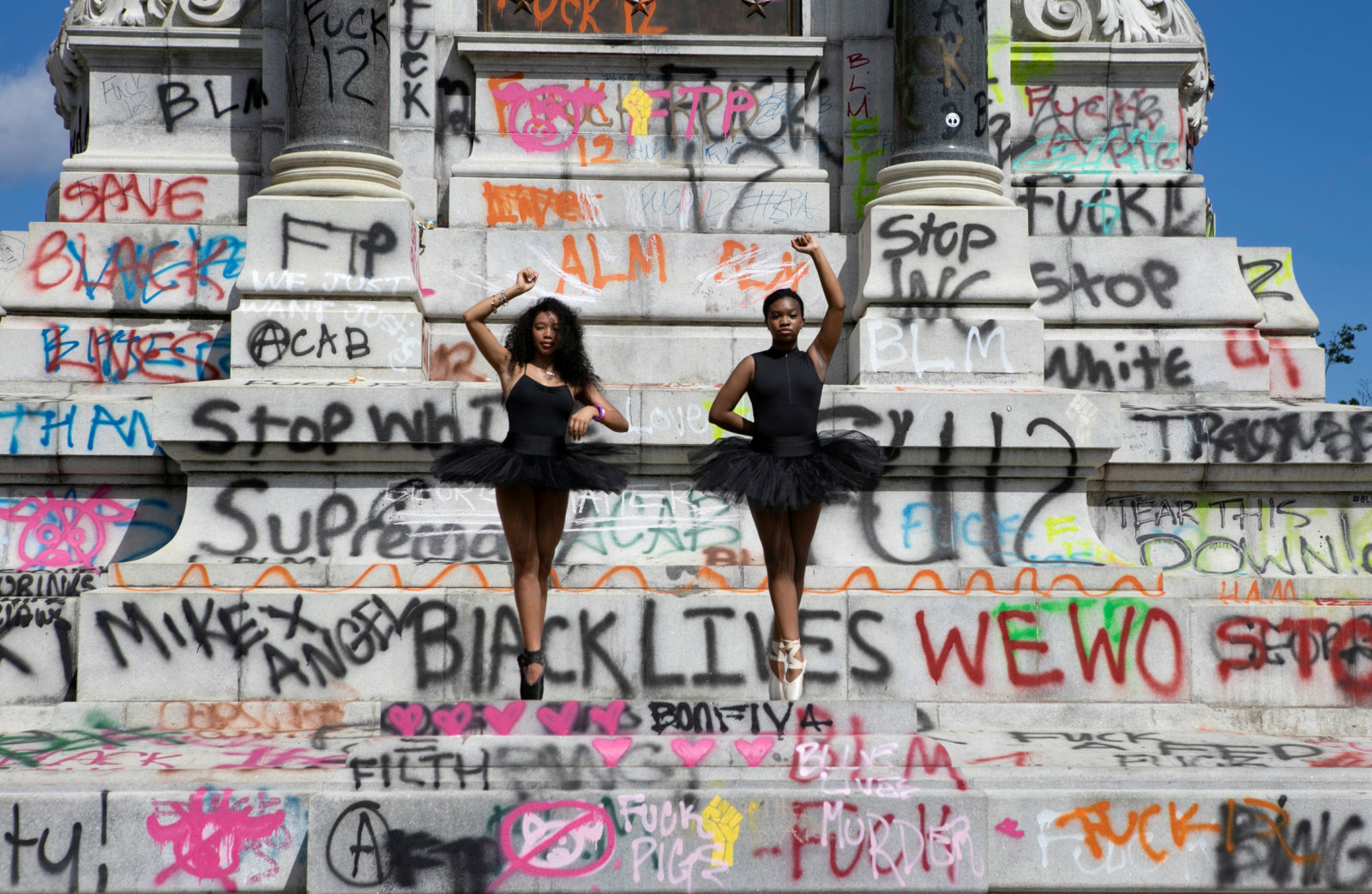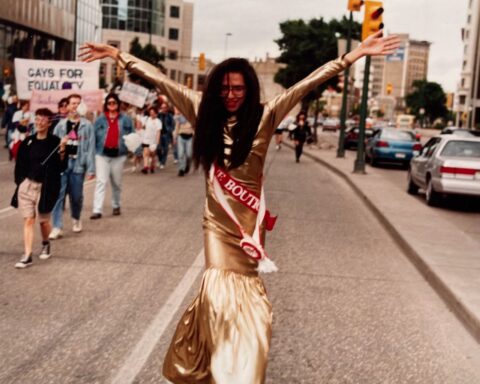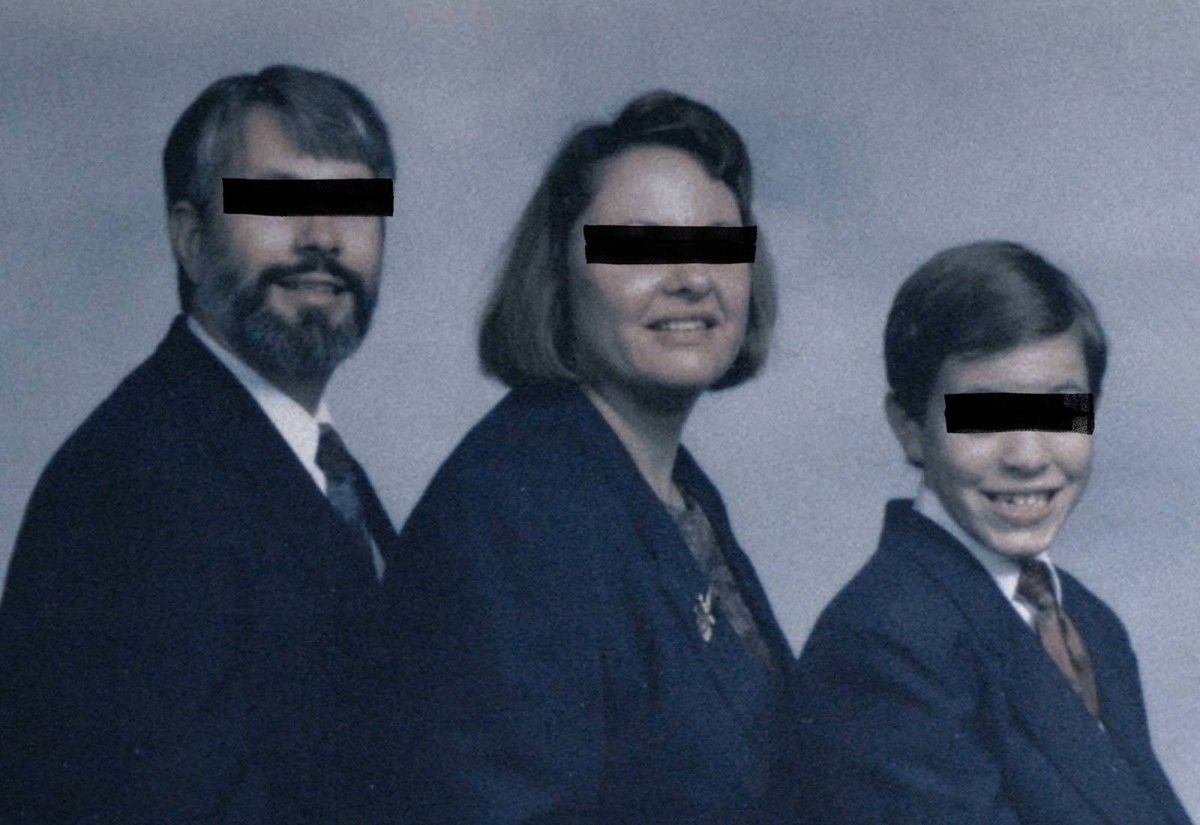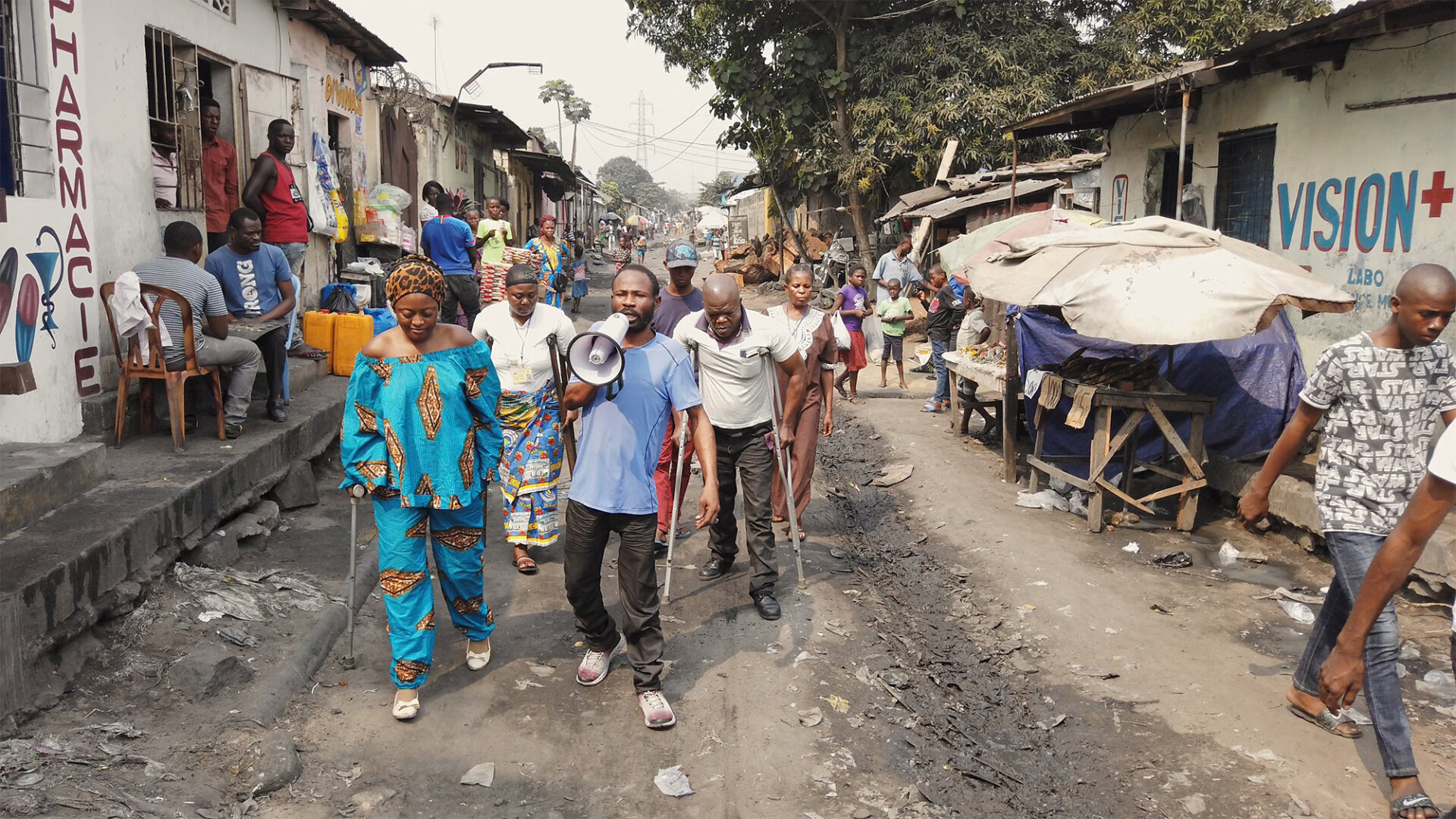Making sequels is a risky business, and it’s nice to report that The New Corporation: The Unfortunately Necessary Sequel pulls off that unenviably tricky feat. Few films have had an impact on Canadian documentary in the way The Corporation did. The 2003 film by Mark Achbar, Jennifer Abbott, and Joel Bakan was a rare critical and commercial hit that sparked deep and thoughtful debates with the public. Abbott and Bakan follow up their film, which explored how corporations mirror the behaviour of psychopaths but aren’t subject to the same restrictions, by interrogating the latest mutation of corporate psychopathy. The New Corporation looks at how corporate pathology has shifted and upped the stakes for its narcissistic quality by exuding a philanthropic guise. Whether this effort to transform corporate behaviour benefits the world, rather than the shareholders’ bottom lines, is at the heart of Abbott and Bakan’s film.
The New Corporation is also one of many films premiering at this year’s Toronto International Film Festival (TIFF) sporting a “COVID cut” on the red carpet. Much like the DIY haircuts many people endeavoured during the early stages of the pandemic, the documentaries of TIFF 2020 reveal how filmmakers re-evaluate their works in a time of undeniable social change. The pandemic, as well as the resurgence of the Black Lives Matter movement following the murder of George Floyd, speak to the tensions in society that are the foundation of Abbott and Bakan’s film. The filmmakers therefore had a doubly unenviable task of meeting the bar set by their first film while reshaping their doc to reflect a world that changed during post-production. The result is sure to be among the talking points of TIFF, VIFF, and other festivals where The New Corporation subsequently screens.
POV spoke with Abbott and Bakan via Zoom ahead of The New Corporation’s TIFF premiere to discuss the mammoth task of following their 2003 hit, the stakes for democracy in corporate culture, and how they transformed their film in a moment of unprecedented social change.
POV: Pat Mullen
JA: Jennifer Abbott
JB: Joel Bakan
The interview has been edited for brevity and clarity.
POV: Why revisit The Corporation at this point?
JB: Around the 10th anniversary of the first film we had a big event screening. I had already started thinking about doing academic work about what seemed to be a growing phenomenon. Corporations were becoming more powerful every day and I was seeing an existential crisis and democracy in crisis. Things we looked at in the first film were getting worse. At the same time, corporations were saying, “We’re getting better.” I can’t tell you how many times business people said to me, “Thank you for pointing out the problems with The Corporation. We’re fixing it and we’re going to become good institutions.” There was this strange contradiction between corporations saying they were becoming better and less psychopathic and the problems that they were creating becoming far worse.
When we made the first film, we were looking at an institution that existed within society and the way things had shifted. We’ve gone from being in a society that had corporations to being in a corporate society. That qualitative shift justified looking at this whole thing again.
JA: I had a very different response to the idea of making a sequel. Making the first film was such a huge endeavor. I was one of the directors and also the editor. I cut that film from 400 hours of footage. After it was completed, I was quite literally near collapse. It was such a monstrous undertaking the first time that I needed a compelling reason to do the sequel. It’s difficult to live up to the first iteration of a film. But then Donald Trump was elected. It’s not as if Trump is the cause of all these problems, but he was a symptom. The veil came down and there was no longer the pretense that corporations and governments were acting independently. Now they have the gall to do it in plain view. But I was in the middle of making another film too, so I already enough on my plate.
POV: How did the projects feed off one another since you were making The New Corporation and The Magnitude of All Things simultaneously?
JA: Joel and I wanted to look at the corporate connection to the destruction of the natural world. As Joel pointed out, the climate crisis is now an extensional crisis, which is different from when we made the first film. The New Corporation has a large focus on the destruction of the natural world as it relates to our broader themes. The Magnitude of All Things is mostly location footage filmed from the climate front lines all over the world. It’s a very personal story that deals with the emotional and psychological dimensions of the climate crisis. It was a challenge to work on both films at once, just as it would have been for Joel to work on the film and the book simultaneously, but I think they both speak to the most critical issues of our day.
*
POV: Joel, how is the process of confronting this story in a book differ from making a film?
JB: Print allows you to go deeper and broader in terms of content. There are more stories in the book. Print allows you to be very academic with footnotes and develop the argument in a scholarly way, even though it’s a mass paperback kind of book. I love writing for print and trying to create the rhythm. But film has dimensions that print doesn’t have. Film gives you emotional tools. You do this in print to some extent, but with film you can reach a person’s heart in nonverbal ways—through music, through the rhythm of cuttings by our brilliant editor Peter Roeck, through the beauty or terror of the images that are being presented.
POV: The film features a great interview with John Browne, former CEO of BP Oil, as one of the speakers from the corporate world. Do you have concerns about giving the corporate world a voice or a platform, or is there willingness to get before the camera another facet of the sort of psychopathic character of corporate life?
JB: John Browne is a good example and I think this would be true of John Coyne from Unilever, Klaus Schwab, the head of the World Economic Forum, and Jamie Dimon from JP Morgan Chase. They will say, “You were right in the first film and book. We were acting in ways that were not great. But since then we heard the protesters on the streets after the anti-globalization movement, and we knew that we had to step up our game, so we became new corporations.” John Brown is the leader of that movement. He’s written the book, literally. It’s called Connect. It’s all about how capitalism has to remake itself. The people that we targeted were people who are on the “good side” of capitalism. They wanted to tell that side of the story and say how corporations had changed and were changing.
It’s no secret that we made the first film [and I wrote a book at the same time]. I spend a whole chapter in the first book on John Browne showing the contradictions between his nice words and BP’s actions. That was before Deepwater Horizon. I would presume that before somebody like that is going to sit down for an interview with us, he’s going to do some due diligence and see what’s out there. The way that Jennifer cut the first film, when we’re talking to people from the corporate world, we don’t edit them unfairly. We let them tell their story. We challenged that story, but we let them tell their story. I think the problem is that the corporation itself, regardless of sincerity, is institutionally what it is.
POV: Chris Barrett returns from the first film and shows a transformation from being the student who sold himself for advertising to pay for school to now being a grassroots politician inspired by Bernie Sanders. How did it work with him coming back to the story?
JA: As he says in the sequel, when he saw the first film and his portrayal in it, his mind exploded. It was interesting that a person could shift his opinions and consciousness so quickly. As the years went by, he popped up now and then and he’s come to various screenings. We were aware that he was running for public office. We talked about revisiting several people from the first film, but his story was so compelling in terms of how it related to our themes.
POV: A lot of the examples we see in the film are American corporations or international ones, but to what extent does the insidiousness of corporate philanthropy and the corporate character exist in Canada?
JB: I think the recent scandal involving WE is a nice example. I wrote about WE years ago in the book Childhood Under Siege as an example of the philanthropic capitalism that we look at in the film. The way that it became embroiled with the government shows how strong and complicated these ties are. Our Prime Minister, Justin Trudeau, stood up in Davos and talked about how we’re in a new era. You see him in the film saying we’re in a new era of corporate social responsibility. He’s very much of the mindset that we’re criticizing. This recent scandal with WE shows some of the perils of that. Everything we talk about in the film is perfectly applicable in Canada, and we do talk to a vice president from Unilever Canada.
JA: The Canadian government is not impervious to the influence of American corporations or international ones. We can look at the purchase by the Trudeau government of the pipeline from an American organization to see some of the disastrous consequences of American corporations in Canada. Let’s hope it becomes a stranded asset.
POV: How did the pandemic affect the production? The film integrates it quite strongly in later acts.
JA: Thankfully, production had for the most part been completed with both of my films. We actually broke picture lock for The New Corporation on two occasions with the pandemic and the uprising after George Floyd’s brutal murder. Joel and I felt that the pandemic and the uprising were such monumental paradigm shifts. The pandemic did several things that related so strongly to our theme, so there was no way we could not include it. It laid bare the injustices of the system. On the other hand, it also showed us that we were not individualist consumers exclusively. We have this other side—this caring, compassionate side. Contrary to neoliberal or corporate culture, there was another dimension to humanity that was just coming out so beautifully and so strongly. Joel wrote the wonderful line of narration, “The world shut down, but hearts opened wide.”
The pandemic opened up an imagined space for envisioning a different kind of society. It was also essential for us to include the relationship of the pandemic to the destruction of nature. If we don’t stop corporate capitalism from destroying nature, the zoonotic disease transfer from animals to humans is inevitably going to happen again.
JB: Even though it was challenging to break picture lock and go back into the film because of the pandemic, we didn’t have to travel or spend money to get interviews. We could get away with Zoom interviews with people who we’d already interviewed. We developed an aesthetic device doing that.
POV: The outcome of the American election really hangs over the questions raised in this film, but do you think things will change whether Biden wins?
JA: People are saying this is possibly the most important election there’s ever been. It’s quite clear that if Trump is re-elected and the current trajectory, particularly related to the climate crisis and the destruction of the natural world continues, then the very possibility of a livable future for all of us and other species is really in question. As you can likely guess, I’m a huge Biden fan, but, at the same time, I do feel like Biden can be pushed in the right direction. Certainly AOC, Sanders, and other progressives within the Democratic Party have already been pushing that party into what I feel is the right direction. Biden and Harris give us a shot at a future.
JB: Trump gives us almost a certainty of a very dismal future. He seems committed to the project of ending democracy. There are too many instances in history where authoritarian fascist leaders gain power initially through elections and find ways to suspend the operation of democracy.
The sad thing, though not surprising, is that corporate elites are thoroughly committed to him. They will not say in public “we like Trump.” Here’s one of the areas where I could go a bit deeper in the book. It’s just incredible to see how new corporations are lobbying like crazy for Trump to be even more “Trump.” They’re lobbying him for more deregulation. They’re lobbying him for more tax breaks. I began this project while Obama was still in the White House. The issues that we’re talking about here did not begin with Trump. They began 40 years ago with Reagan and arguably before that with the un-building of what used to be called the social welfare state. Obama contributed to dismantling that, as did Clinton. It hasn’t just been the Republicans.
POV: There’s a tonal shift in the film where the later acts look at the grassroots politicians that have gained more prominence. Are you optimistic?
JA: The primary tension in our film is between corporate capitalism and democracy. There absolutely is a tonal shift. We’ll say it’s the end of act two and the beginning of act three where we start to explore resistance. We’ve seen a shift in terms of how activists are looking at democracy from the first film to this film. Michael White, one of the co-founders of Occupy Wall Street, talked about the realization that we needed to pair protests with accessing government. Progressives have started to see the electoral process as valuable.
The libertarian critique of government is that there’s no good government. We felt it was necessary to challenge that idea because, if we lose the motivation to aspire to democracy, it will put us as citizens in a precarious situation. We have agency and power as citizens by being actively engaged in government.
JB: I asked myself what is new in activism when we were starting to put this film together. People have always protested. One thing that changed was people used to march through the streets to protest, but then with Occupy, they sat in the streets. They didn’t just sit, but they actually occupied public space and they tried to enact a kind of participatory democracy. There was an attempt to say we’re protesting against corporate capital, but we’re also trying to show what democracy might look like with how we govern ourselves in this occupation. That was new.
JA: One other difference with progressives who are currently running for political office is that they frequently will self-identify as socialists. That’s an extraordinary shift from when we were making the first film. People are really questioning corporate capitalism as an economic system, and there’s a willingness to do so currently that did not exist when we made the first film.
POV: How did the film end before COVID happened?
JB: If we look at the narrative arc of the film, it was really important to us that we descend into the despair of this moment in time and not hold back. Act two ended with Chris Hedges saying that you can’t truly grasp the importance of this moment in time without falling into despair. Then we go into the resistance section of the film. I wanted the film to be authentically hopeful.
JA: There are many hopeful stories in act three and the extraordinary groundswell of the resistance. is But I think for myself and for Joel, the uprising after George Floyd’s murder occurred changed the momentum suddenly. We saw the passion and effectiveness of this mass resistance to challenge not only racism, but systemic racism. The challenge to systemic racism includes an identification of how corporate capitalism is racialized and impacts negatively on BIPOC communities. The whole film changed. The uprising made the film authentically helpful.
JB: Before COVID and George Floyd, we had a good argument for hope in the film. We showed local politicians, we showed the wake of Sanders and AOC, and we showed the struggles against climate change. What we managed to do with COVID and with the uprising in the wake of George Floyd’s brutal police killing was to create a feeling of hope, not just an argument for hope. Before, the hope was inauthentic at the end. It felt like it was more in the head than in the heart.
The New Corporation: The Unfortunately Necessary Sequel premieres at TIFF on Sept. 13, 2020 and screens at VIFF.














